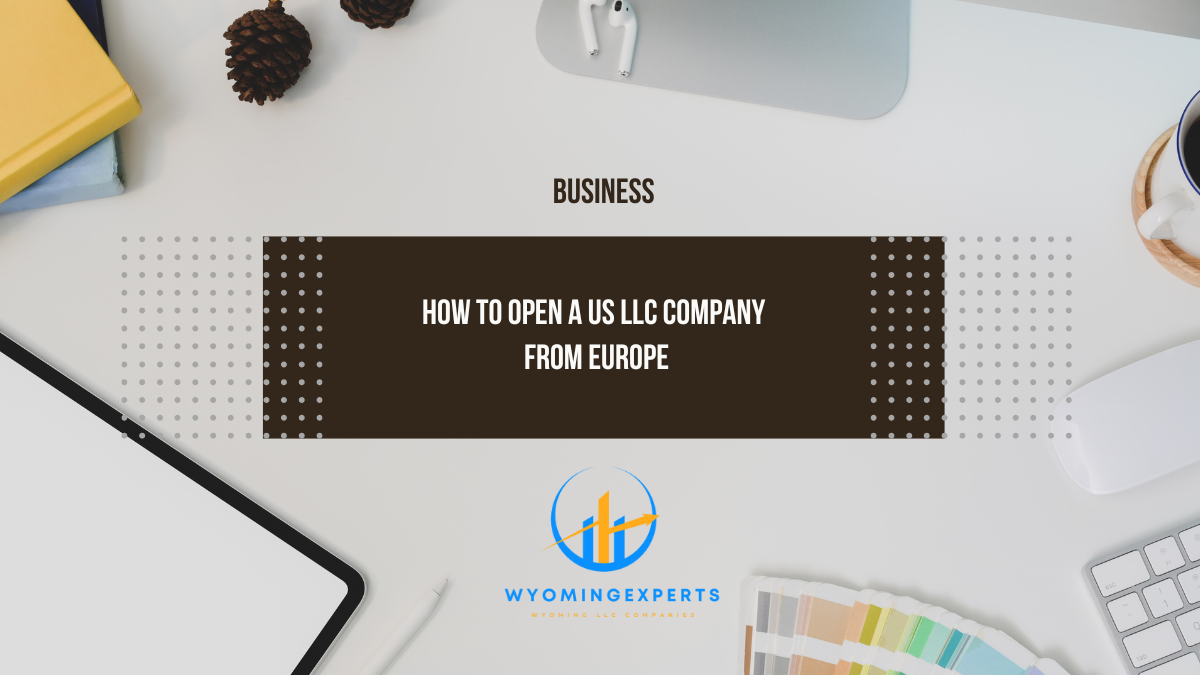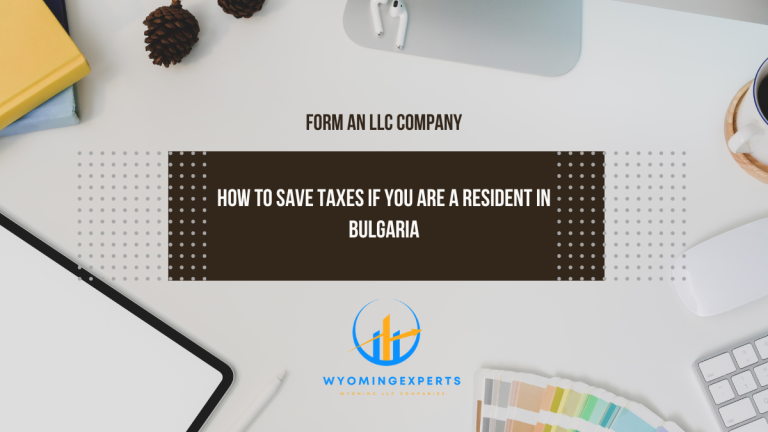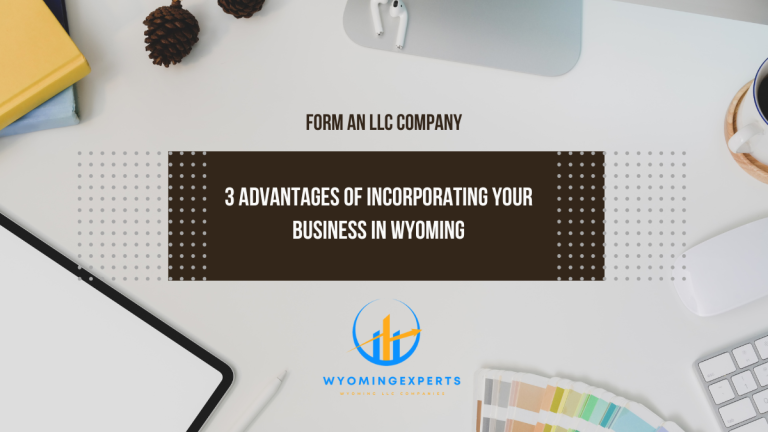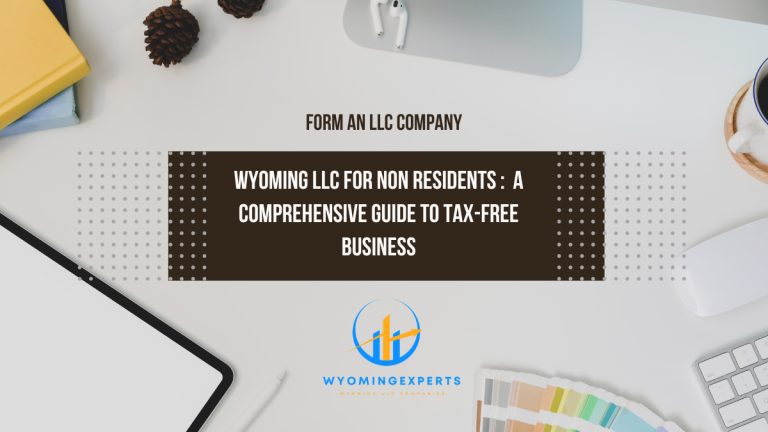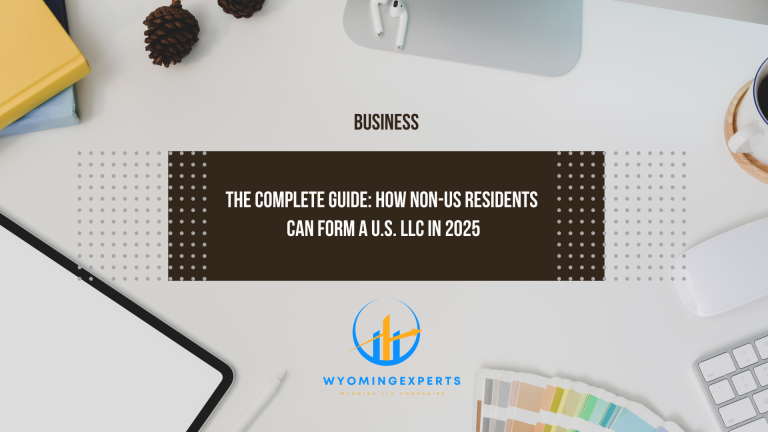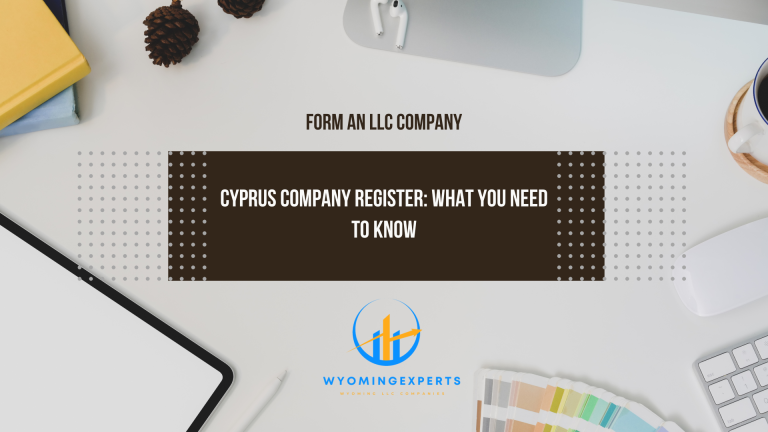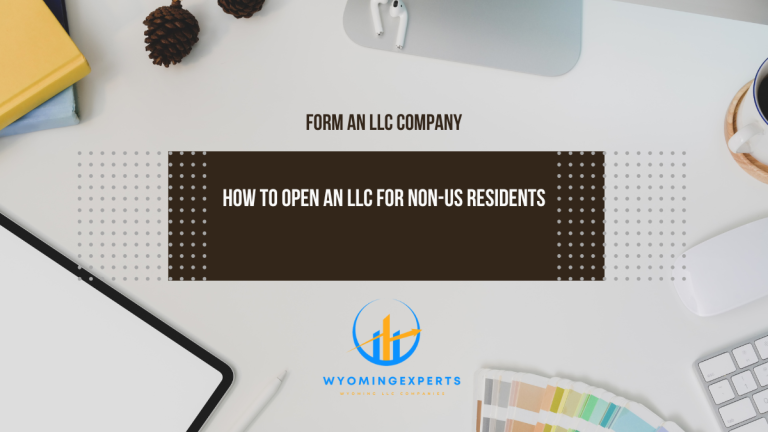How to Open a US LLC Company from Europe
If you live in Europe and wonder how to open a US LLC from Germany, you’re not alone. Many entrepreneurs across Germany, Spain, France, and beyond are realizing the benefits of a US-based LLC: business credibility, access to US markets, privacy, and favorable tax regimes. In this guide, I’ll walk you step by step — in plain English — through the process of forming a US LLC as a European resident.
You’ll also learn which states are best (for example, best state to register LLC for non US) and special tips for someone wanting to open LLC from Germany or start US company as EU resident.
Why Open a US LLC from Europe?
Before we dive into the steps, let’s first address why this can make sense:
- Credibility with US clients: Many US customers or partners feel more confident dealing with a US entity.
- Limited liability protection: Just like in Europe, the LLC structure protects your personal assets from business liabilities.
- Pass-through taxation: For many non-US owners, profits “pass through” to your personal tax return (depending on where you live and your tax treaty) — you avoid double taxation in some cases. (See more in tax section below.)
- No need to physically relocate: You can manage everything online — no visa, no physical US address (beyond registered agent), no move required.
- Business and payment flexibility: Easier to open US business bank accounts, integrate with Stripe, PayPal, Amazon, etc.
However, it’s not magic: you’ll still need to comply with both US and your home country’s tax and reporting laws.
Step 1: Choose the State for Your LLC
One of the first and most important decisions is which US state you’ll register your LLC in. This choice affects fees, tax rules, compliance burden, and privacy.
Why state choice matters for non-US residents
- Different states have different filing fees, annual reports, and tax rules.
- Some states are more foreign-friendly (allow online filing, minimal bureaucracy).
- Privacy: some states allow you to hide owner names from public records (or require minimal disclosure).
- Maintaining your LLC is easier in states with low annual burdens.
Top states: Wyoming, Delaware, Nevada (and sometimes New Mexico)
These states are frequently recommended for non-US owners.
Here’s a quick comparison:
| State | Pros for non-US | Cons / caveats |
|---|---|---|
| Wyoming | No state income tax; strong privacy; low annual fees | If you later have physical operations in another state, you may need foreign registration |
| Delaware | Highly respected corporate laws; good for investors; many disclosure protections | Annual franchise tax can be high; more complex reports for some LLCs |
| Nevada | No state income tax; privacy protections; business-friendly | Higher fees; less used reputation among banks |
| New Mexico | Lower cost, decent privacy | Because it’s less used, some payment processors (Stripe etc.) raise flags |
In practice, Wyoming often is the sweet spot for many non-US entrepreneurs, combining low cost, strong privacy, and minimal burden. Many guides and services recommend it as “best state to register LLC for non US” for small to medium online businesses.
If you are in Germany, for instance, the decision is no different — your LLC doesn’t have to be in a German state, it can be in Wyoming (or Delaware) while you operate from Germany. There are guides specifically on open LLC from Germany using these states.
Step 2: Pick a Name & Check Availability
Once you choose the state, you need a unique business name for your LLC.
- The name must include “LLC” or “L.L.C.” (depending on the state’s rules).
- It must not collide with existing registered names in that state.
- It’s smart to run a trademark check via the US Trademark Electronic Search System (TESS), especially if your business will build a brand.
- Optionally, you may reserve the name (for a small fee) while prepping documents.
Step 3: Hire a Registered Agent in the State
Because you live in Europe, your LLC still must have a registered agent with a physical street address in the state you choose.
- The registered agent receives legal documents, official notices, etc.
- Many services provide this role; fees typically range from $25 to $200 per year depending on state and service level.
- Choose a reliable service — missing a legal notice can lead to penalties.
- This agent’s address is public (unless the state allows anonymity), so sometimes ownership can still remain hidden behind the agent.
Step 4: File the Articles of Organization (LLC Formation)
This is the “official” step where the state creates your LLC.
- You (or your agent) submit “Articles of Organization” (or equivalent) to state’s Secretary of State.
- The form includes: LLC name, address, registered agent info, purpose (often broad / generic), sometimes initial members.
- Pay the filing fee (varies by state).
- Many states allow entirely online submission, which is ideal for remote formation.
- Once approved, your LLC is officially formed.
Step 5: Obtain an EIN (Employer Identification Number)
An EIN (issued by the US IRS) is like a tax ID for your LLC — needed for banking, paying taxes, hiring, etc.
- Non-US residents can apply for an EIN by submitting IRS Form SS-4.
- Some states or banks may require additional documentation.
- You don’t necessarily need a US Social Security Number (SSN) to get an EIN — although in some cases, providing an ITIN or foreign tax number can help.
Step 6: Open a US Business Bank Account (or Payment Solution)
With your LLC and EIN in hand, you’ll want a US bank account or a payment service to accept US dollars, use Stripe, etc.
- Many traditional US banks require physical presence or strict KYC, which is hard for someone in Europe.
- Ensure the bank or payment provider supports non-resident LLCs.
- Keep your personal and business finances separate to preserve liability protection.
Step 7: Create an Operating Agreement & Internal Structure
Although not always required by the state, it’s strongly recommended to draft an Operating Agreement.
- It governs how your LLC is managed, profit distribution, responsibilities, etc.
- Even for a single-member LLC, having it helps avoid confusion and legal ambiguity.
- If there are multiple owners (members), it clarifies roles and disputes.
Step 8: Comply with Ongoing Reporting & Taxes
Forming the LLC is just the start — you must stay compliant.
State requirements
- File annual report or annual fee depending on the state. Wyoming, for example, charges a minimum fee (often around $60) if your assets in Wyoming are low.
- Pay any state-level taxes or franchise fees if applicable.
Federal / IRS requirements
- As a non-resident, you may have to file IRS Form 5472 plus a pro forma Form 1120 in certain cases.
- If your LLC has US-sourced income or “effectively connected income (ECI)”, you may owe US tax. But if all your business is done outside the US, sometimes you avoid federal tax.
- Also watch local tax laws in your country of residence; many EU countries tax worldwide income.
Special Tips: Opening LLC from Germany or EU Resident
Because you asked about “open LLC from Germany” and “start US company as EU resident”, here are tailored tips:
- In Germany, the tax authority may treat your US LLC income under “controlled foreign corporation (CFC)” rules — you should consult a German tax advisor.
- Even if your LLC is US, Germany (or your EU home country) may still tax the profits. Always check double taxation treaties.
- Many German founders use a US LLC to access US clients and systems (Stripe, Amazon USA) but declare profits locally under German tax rules.
- Use the fact that you live in Europe to your advantage: structure your operations so that most “business activity” is outside the US — reducing your exposure to US tax.
- If your business sells into the EU, you still need to comply with EU VAT rules, digital services taxes, etc.
Putting It All Together: Timeline & Checklist
Here’s a simplified timeline and checklist:
- Choose state (Wyoming, Delaware, etc.)
- Pick name & check availability
- Hire registered agent in that state
- File Articles of Organization / LLC formation
- Apply for EIN
- Open US bank / payment account
- Draft Operating Agreement
- Start operations / accept payments
- File annual reports / pay state fees
- File necessary IRS forms / local taxes
In many cases, a non-US owner can complete all of this within a few days to a couple of weeks, especially if you use professional services or agents who know how to work with foreign clients.
Common Pitfalls & Mistakes to Avoid
- Choosing a bad state: Picking your home EU country’s state (or a state with high fees) can eat into your profits.
- Weak registered agent: Don’t choose a cheap, untrustworthy agent. If you miss official mail, your LLC can be penalized or dissolved.
- Mixing personal and business funds: If you don’t keep them separate, you risk losing liability protection.
- Ignoring home country tax laws: Just because your LLC is US doesn’t mean your country won’t tax the profits.
- Using a bank without support for foreign LLCs: Some banks outright reject non-resident LLCs or close them later.
- Neglecting compliance: Forgetting annual reports, filings, or federal requirements will lead to fines or state dissolution.
Is This Strategy Worthwhile?
Yes — for many EU founders, forming a US LLC provides access to US clients, enhanced credibility, and global payments infrastructure. But it only pays off if:
- Your business model earns in USD or sells to global markets.
- You remain disciplined with tax compliance in both US and home country.
- You use states like Wyoming or Delaware which offer minimal ongoing burden.
- You don’t expect to run heavy physical operations in the US (if you do, you might have to register in that US state, complicating matters).
If you’re in Germany, Spain, France or elsewhere in Europe and your goal is to open LLC from Germany or anywhere in the Schengen, this structure often becomes a powerful tool. Just pair it with good local (EU country) tax advice.

